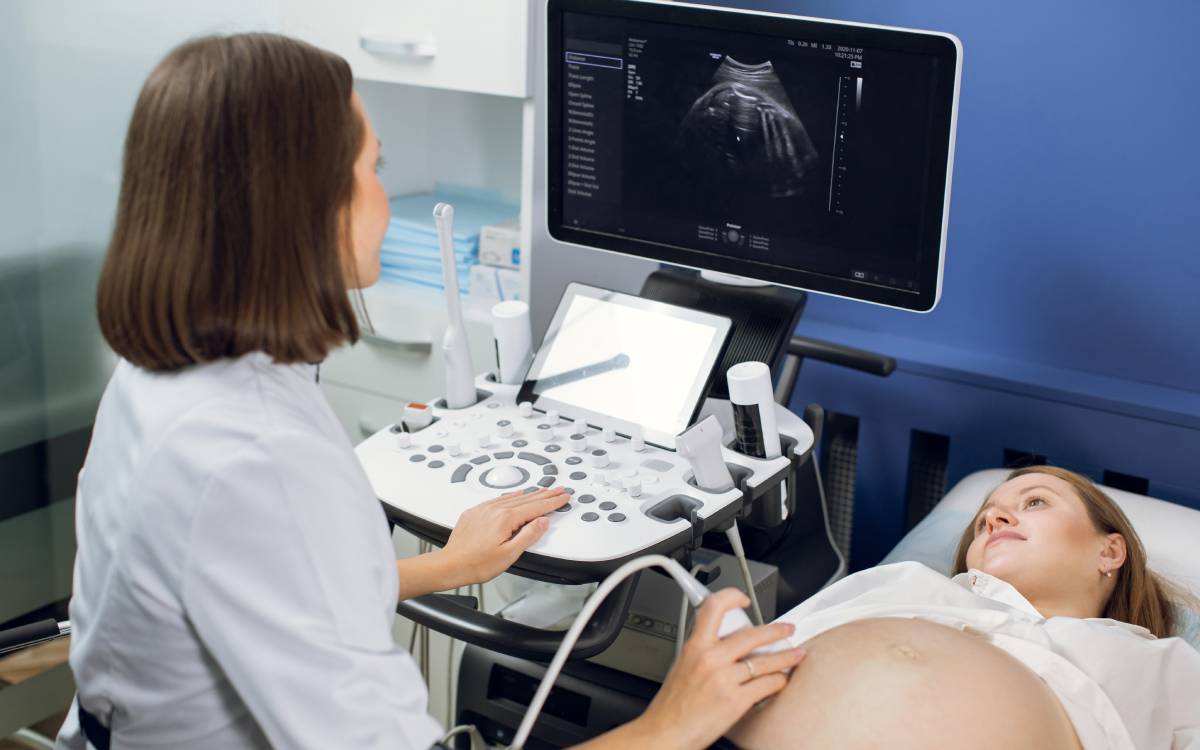
Nexplanon Insertions and Removals Available
Deliveries at MountainView Hospital

Pregnancy is a beautiful journey, but it’s also a time filled with questions, decisions, and the desire to do everything right for your growing baby. One crucial aspect of prenatal care is screening—a process designed to provide valuable insights into your baby’s health and your own well-being. Prenatal screenings are more than routine tests; they are a proactive way to ensure a healthy pregnancy and prepare for any challenges ahead. Let’s dive into why these screenings are so essential and what you can expect along the way.
Prenatal screenings are non-invasive tests performed during pregnancy to assess the health of both mother and baby. These tests evaluate the risk of certain conditions, such as chromosomal abnormalities, physical anomalies, and maternal health concerns. It’s important to note that screenings indicate the possibility of an issue but are not diagnostic. For definitive answers, additional diagnostic tests may be recommended.
Screenings include everything from blood tests to ultrasounds and advanced options like non-invasive prenatal testing (NIPT). They are a standard part of modern prenatal care and provide peace of mind during this transformative time.
Understanding the types of screenings available can help you feel confident and informed about your pregnancy care plan.
Prenatal screenings offer a wealth of benefits that go far beyond identifying risks. Here’s why they matter:
Screenings can identify potential genetic or physical conditions in your baby, such as Down syndrome or heart defects. Early detection allows parents and healthcare providers to plan interventions or specialized care if needed.
These tests also assess the mother’s health, checking for conditions like gestational diabetes or preeclampsia. Early identification helps ensure the pregnancy progresses smoothly and reduces risks for both mother and baby.
If a screening indicates a potential issue, parents and doctors can prepare accordingly. This might involve consulting specialists, planning for surgery after birth, or arranging for additional support during delivery.
Knowing what to expect can help reduce anxiety and provide time to prepare emotionally and logistically for any challenges that may arise. Informed parents are empowered parents.
Prenatal screenings are typically scheduled at specific points in your pregnancy to maximize their effectiveness.
Some expectant parents may feel hesitant about prenatal screenings. Let’s clear up a few common misconceptions:
While your overall health plays a role in pregnancy, many conditions detected by screenings are unrelated to maternal health. Screenings provide essential insights into the baby’s development.
Knowledge is power. While it’s natural to feel anxious, understanding your baby’s health can help you prepare and make informed decisions.
It’s important to remember that screenings indicate risk levels. Diagnostic tests may be needed for definitive answers, but screenings are a vital first step in identifying potential issues.
Yes, prenatal screenings are non-invasive and safe for both mother and baby. They involve simple blood tests or ultrasounds, with no risk of harm.
Preparation can help make your screening experience smooth and stress-free:
Discuss your family medical history and ask questions about the purpose of each test. Open communication ensures you feel confident and informed.
Understand that screenings provide probabilities, not certainties. Focus on using the information as a tool for planning and preparation.
Your OB/GYN is your partner in navigating prenatal screenings. They provide guidance on which tests are most appropriate for your pregnancy, interpret results, and support you in making informed decisions. Whether you’re managing a high-risk pregnancy or seeking routine care, their expertise ensures you and your baby receive the best care possible.
Prenatal screenings are a cornerstone of modern pregnancy care, offering invaluable insights into the health of both mother and baby. By identifying potential risks early, these tests empower parents to make informed decisions, prepare for the future, and ensure the best outcomes for their growing family.
If you’re expecting or planning to conceive, embrace the benefits of prenatal screenings. Contact a trusted provider like Dr. Nader and Associates to guide you through every step of this remarkable journey. Your health and your baby’s well-being deserve nothing less.
1. What happens if a screening result indicates a potential issue? Additional diagnostic tests, such as amniocentesis, may be recommended to confirm the findings.
2. Are prenatal screenings covered by insurance? Most screenings are covered by insurance, but it’s always a good idea to check with your provider.
3. How do I know which screenings are necessary for my pregnancy? Your OB/GYN will recommend tests based on your medical history, age, and risk factors.
4. Can prenatal screenings detect all health conditions in a baby? No, screenings assess specific risks but cannot identify all possible conditions.
5. What are the next steps if I opt out of a recommended screening? Your OB/GYN will discuss alternative options and ensure your pregnancy care continues smoothly.